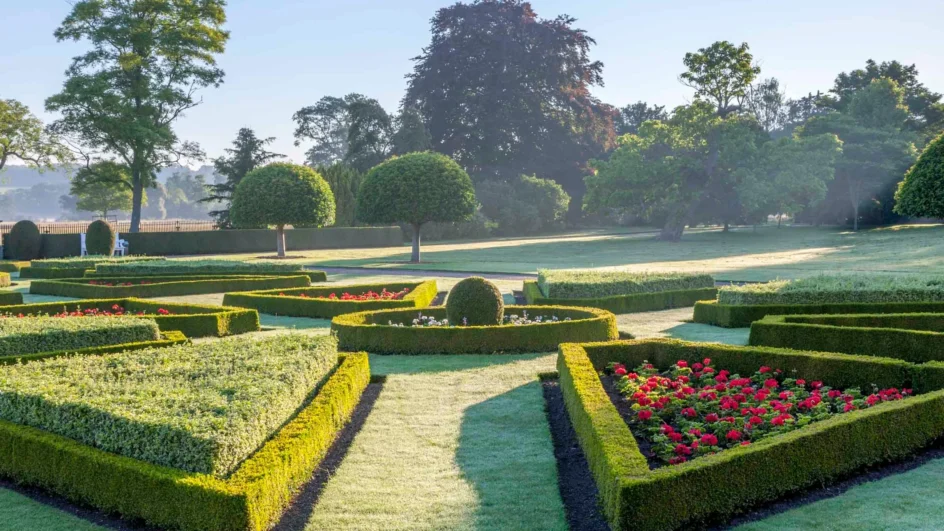
Arit Anderson, garden designer and Gardeners’ World presenter, Marian Boswall Landscape Architects, Davies White Landscape Architects and Nigel Dunnett, Professor of Planting Design and Urban Horticulture – founders of the Sustainable Landscape Foundation, will work closely with Wimpole’s horticulturists to re-imagine the historic garden feature.
The traditional, box-hedged parterre planted with annual bedding and bulbs, is becoming unsustainable due to high need for irrigation and regular replacement of plants. Cold winds, drought and increasingly extreme weather conditions further add to plant stress. The redesign is to ensure a more environmentally sustainable, biodiverse feature, whilst still offering visitors a longer period of colour and interest.
According to the National Trust, the first parterre at Wimpole was created in the 17th century but swept away when fashions changed in the 18th century and then partially revived in the 19th century before being lost again. Today’s project is an example of the continuing innovation of gardeners and designers that has shaped the garden through history and will continue to shape them into the future.
Andy Jasper, National Trust Director of Gardens & Parklands, said: “When the National Trust took on the care of Wimpole, the parterre had been lost for several decades. The scheme we have today was created in the 1990s to replicate what had been there in the 19th century. The formal design was very effective but is getting harder to maintain so it’s time for a bold, pioneering new chapter”.
Nigel Dunnett, a leading exponent of ecological planting in gardens and public spaces, said: “It’s an exciting prospect to re-imagine the planting for the parterre at Wimpole, in the context of a changing climate and the need to become more sustainable in how we plant and manage our gardens. We can create ‘high-impact, low-input’ plantings that are better for the wider environment, but, crucially, are still hugely beautiful and colourful, and that look good throughout the year. With increasing diversity in the planting comes increasing diversity in the wildlife that it supports. That’s not just about pollinators – for example, we will be looking into plants that support all stages in the life of invertebrates, and that provide food for seed-eating birds, as well as considering plants that reflect, and contribute to, the wider ecology of the area.”
A series of online and in-person stakeholder engagement workshops will take place throughout the project. The next engagement session will take place online on Wednesday 11 October 2023 (5.30-6.30pm). Those wishing to attend can email wimpolehall@nationaltrust.org.uk to register interest.

